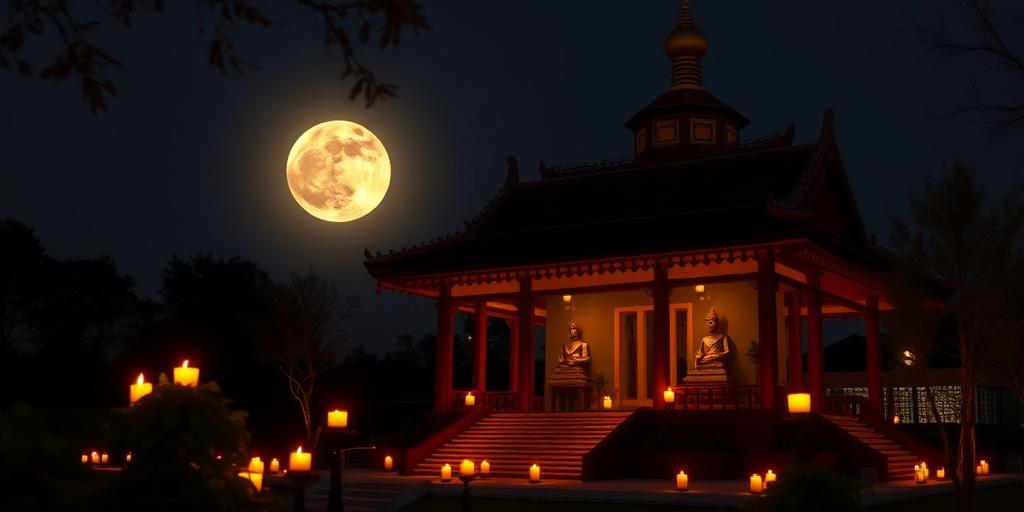Vesak, also known as Buddha Jayanti, is the most sacred day in Buddhism. It commemorates the birth, enlightenment, and death (Parinirvana) of Gautama Buddha. Observed annually on the day of the full moon in the lunar month of Vesakha, typically falling in May, Vesak is a time for reflection, spiritual practice, and acts of kindness.
The observance of Vesak varies across different Buddhist traditions, but several key elements are common. Temples and homes are often adorned with decorations, lanterns, and lights. Devotees engage in acts of generosity, such as donating to charity and offering food to monks. Many Buddhists choose to abstain from meat on Vesak, emphasizing compassion for all living beings.
Visiting temples is a central practice during Vesak. Worshippers offer flowers, light candles, and incense, symbolizing impermanence and the dispelling of ignorance. Sermons and teachings on the Buddha's life and philosophy are delivered, providing an opportunity for spiritual enrichment. Meditation and mindfulness practices are also emphasized, encouraging practitioners to cultivate inner peace and wisdom.
Vesak is not merely a day of ritual and ceremony. It is a time for Buddhists to reaffirm their commitment to the principles of peace, compassion, and ethical conduct. The teachings of the Buddha, known as the Dharma, provide a guide for living a meaningful and fulfilling life. By reflecting on the Buddha's example, practitioners are inspired to cultivate positive qualities and contribute to the well-being of society.
In conclusion, Vesak is a profound occasion for Buddhists worldwide to honor the life and teachings of Gautama Buddha. It is a time for spiritual renewal, acts of generosity, and a commitment to living in accordance with the principles of peace and compassion. The observance of Vesak provides an opportunity to reflect on the path to enlightenment and to contribute to a more harmonious world.









